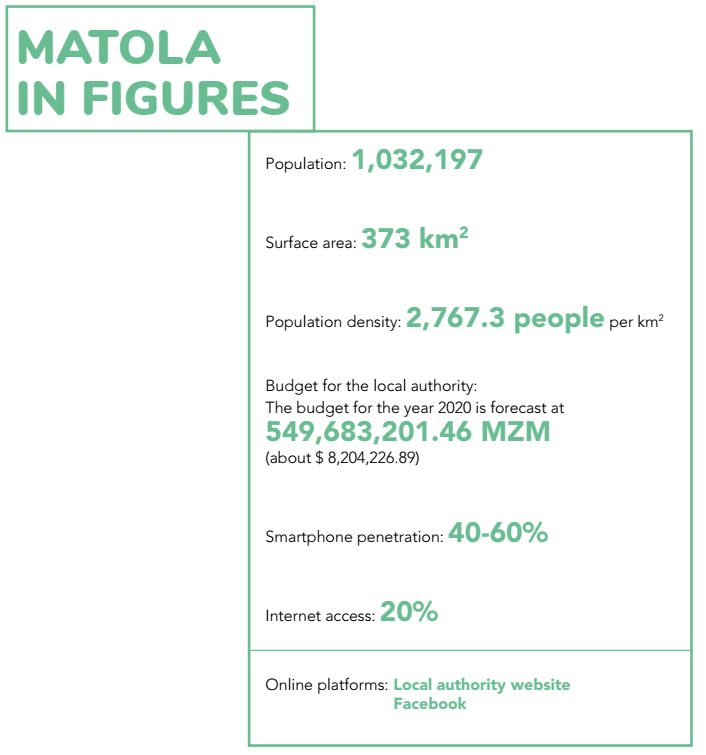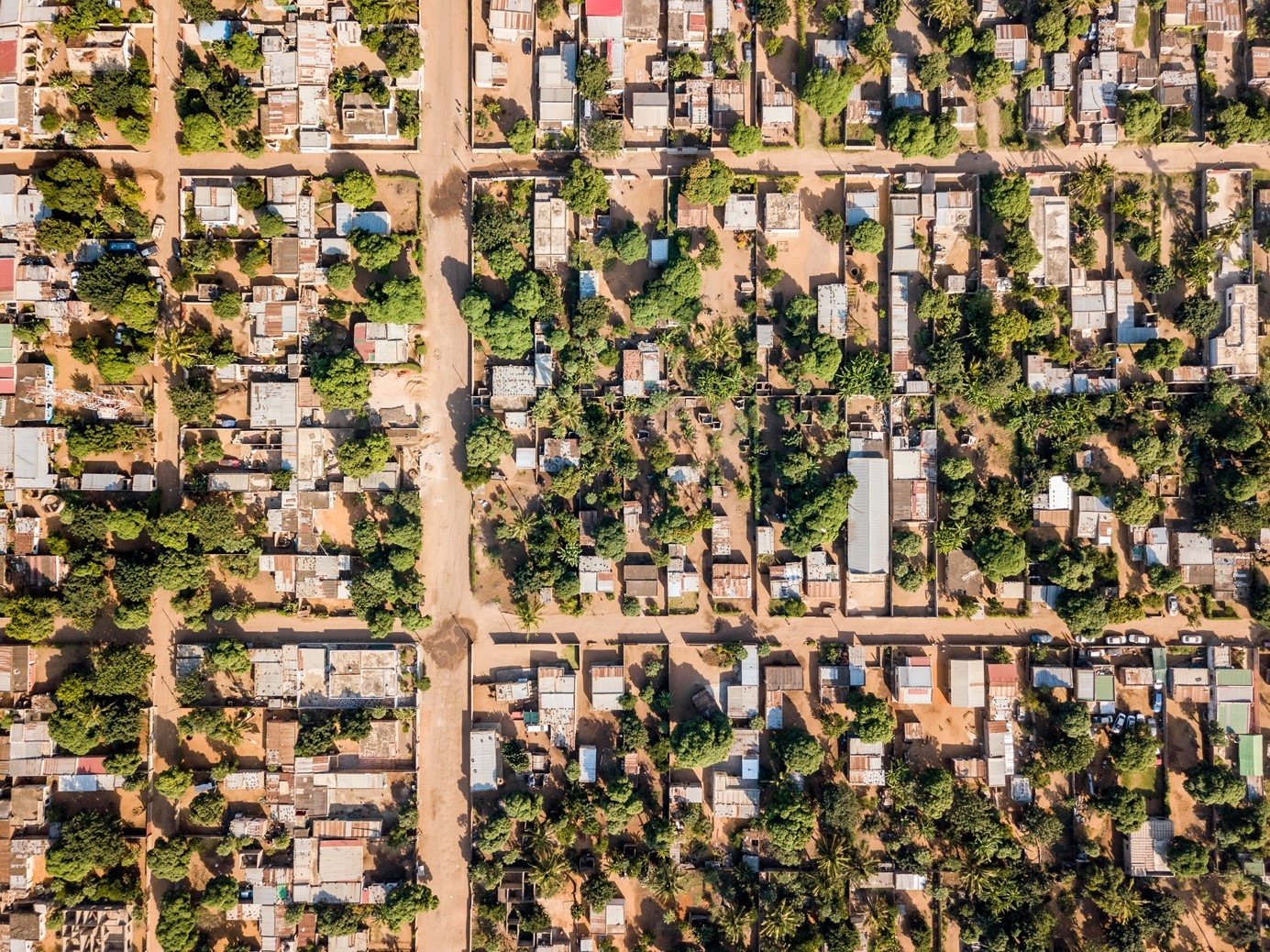Introduction
This section is the city profile for Matola. The profile attempts to present the most important information about Matola and the ASToN project, drawing on information gathered through a questionnaire and a 2-day city visit. Over the course of the city visit, the ASToN team facilitated workshops with the Matola City Council to understand their ambitions and concerns for the project. We also conducted interviews with individuals from the private sector.

About the city
 Matola is the capital of Maputo province and is a Mozambican municipal district. It’s population, according to the 2017 census, is 1 032 197 inhabitants.
Matola is the capital of Maputo province and is a Mozambican municipal district. It’s population, according to the 2017 census, is 1 032 197 inhabitants.
Matola has high economic importance, having been associated since its beginning with the growth of trading relationships between Mozambique and South Africa. Matola is highly industrialized, with about 60% of industrial park activity in the country. In addition to the presence of petroleum refineries, industrial activities include the processing of products including soap, cement, and agricultural materials. In November 2014, the South Korean car company Hyundai opened a factory in Matola.
The municipality is home to the Port Compound of Matola and the Corridor of Maputo, which is an inland transport network which connects regions of southern Africa together. The port acts as a node for the transportation of minerals such as chromium and iron, as well as other exports from Swaziland and South Africa.
Matola sits next to the country’s capital city, Maputo, so there are high levels of movement between the two cities. Nevertheless, the two cities are part of independent municipalities, with administrative, financial and pat- rimonial autonomy.
About the ASToN member
The ASToN member is the Matola Municipal Council (CMCM), which is the executive body of the municipality of Matola. The municipality has an Assembly with deliberative powers, and an executive body that reports to it, under the terms established by law. The municipality is responsible for 21 departments and covers 42 neighborhoods, grouped into 3 Administrative Posts: Matola Sede, Machava and Infulene.
The Matola Assembly is composed of 53 elected members, responsible to pronounce and deliberate on the fundamental issues and issues of interest for the economic, social and cultural development of the municipal community, the satisfaction of collective needs and the defense of the interests of the respective populations, as well as monitor and supervise the activity of other municipal service bodies and companies.
The Municipal Council, composed by 10 councilors and is headed by a president. It has a strong focus on citizen participation, with a specific budget allocated to each borough to spend on projects determined by the citizens – this is known as The Participation Budget and is most commonly used to invest in infrastructure.


